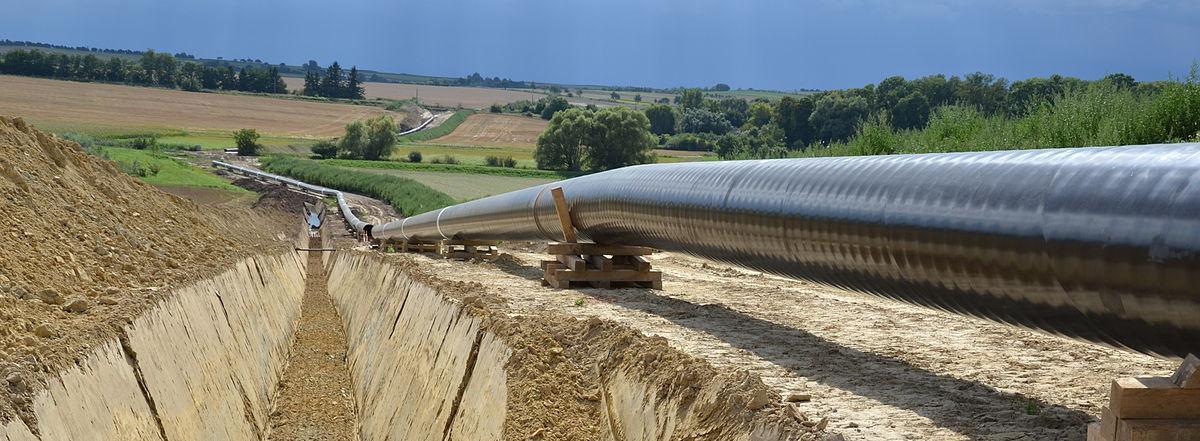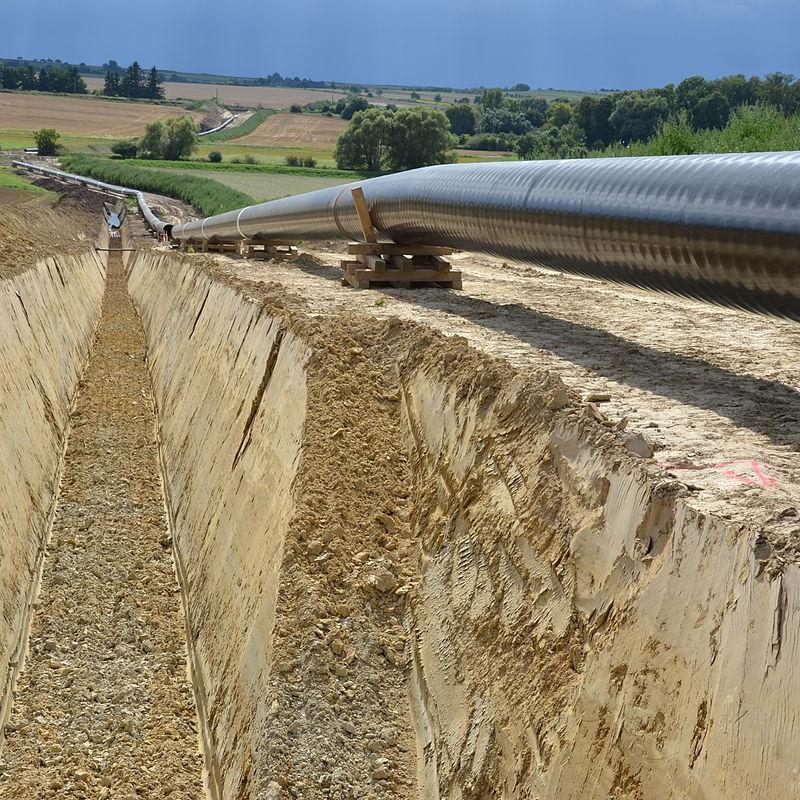Putin’s war of aggression – an excuse to continue business as usual
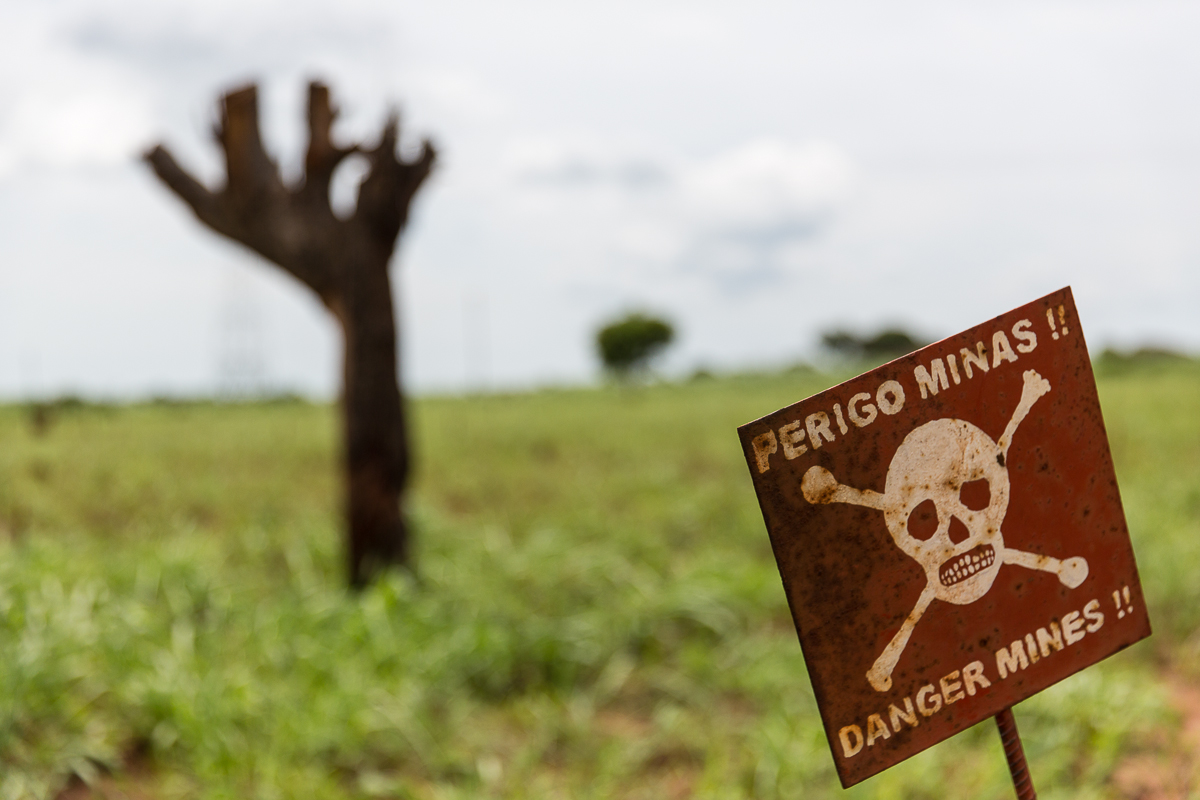
Warning sign against land mines
© Stephane Gisiger; Wikimedia Commons04-29-22
Russia invaded Ukraine.
I am still shocked by what is happening. War is sickening and there is never an excuse to start one. You see, I grew up in Angola. Although by the late 80s, war in Angola was about how many more land mines can one place, I was privileged that I did not have to work the fields to survive. I was lucky that my parents had jobs and we had a roof over our heads. But I was too young to understand why. Why were shops empty, why were children begging or why did some children have missing limbs?
Years later, as an adult, I have realised that war brings out the worst in people. The killing of civilians and the physical violence brought upon innocent people is disgusting. Photos, videos, and news stories will never be enough to fully illustrate the torment, fear, pain, and sadness faced by innocent people living in a war-torn country. And if that wasn’t enough suffering, there are also those who look to gain from something so devastating. I see little difference between the corrupted politicians in Angola who gained from the suffering of their own people in a civil war, with some of the politicians in Europe who yearn to use the invasion of Ukraine for their own gain.
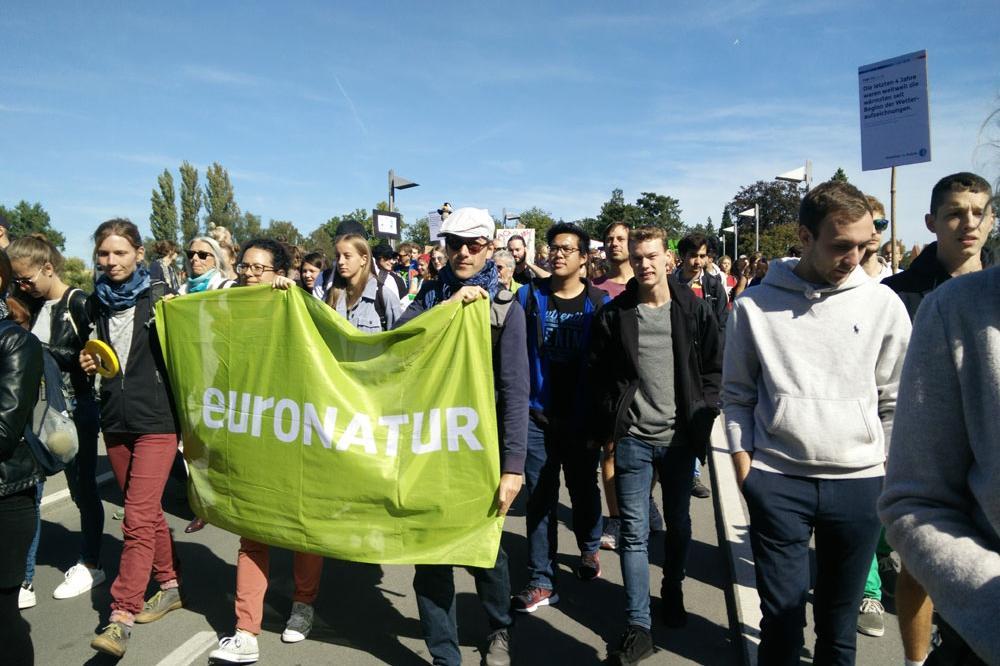
Climate demo in Constance
© EuroNaturYou might think it’s too far fetched to compare Angolan Politicians and EU Politicians, but let me explain why sometimes, it feels that the two are drinking the same brew.
EU politicians have known that relying on fossil fuels was a bad idea, let alone fossil fuels from Russia – a country well known for being anti-democratic, for spying on its citizens, for squashing freedom of expression and civil society. But EU politicians have delayed, sometimes even sabotaged, ambitions to solve the ecological crisis and move to 100% renewable energy. Heck, the last Commission tried to kill green laws. It took teenagers to protest for months for the EU to finally admit that a healthy future in Europe will mean solving the ecological crisis. And alas, we got a Green Deal – a new way forward for Europe. But many EU politicians are still reluctant – because for many of them, this means a change of convictions, a change in politics, a change in the economy. And change is hard. But we must not forget that Putin invaded Ukraine and this isn’t the time to be afraid to change.
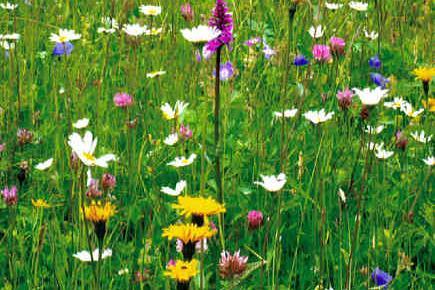
Releasing set-aside agricultural land for the cultivation of fodder crops is the wrong way to go.
© Claudia WeißAnd so, Putin invades Ukraine and now, all of a sudden, politicians are running around trying to find a way to keep the fossil fuel dependency by building more LNG terminals, or killing the farm to fork strategy to keep intensive agri-business operating and growing more crops for biofuels, or building new nuclear power plants.
And this is now part of the conversation in the Renewable Energy Directive (RED) and how the RED will solve the lack of Russian fossil fuels this winter. I must say, it is depressing how quickly the conversation degrades. It’s not brain surgery to understand that the RED is a long-term policy that will not fix the short term needs to heat homes or decrease fuel prices.
Reducing energy consumption is the order of the day
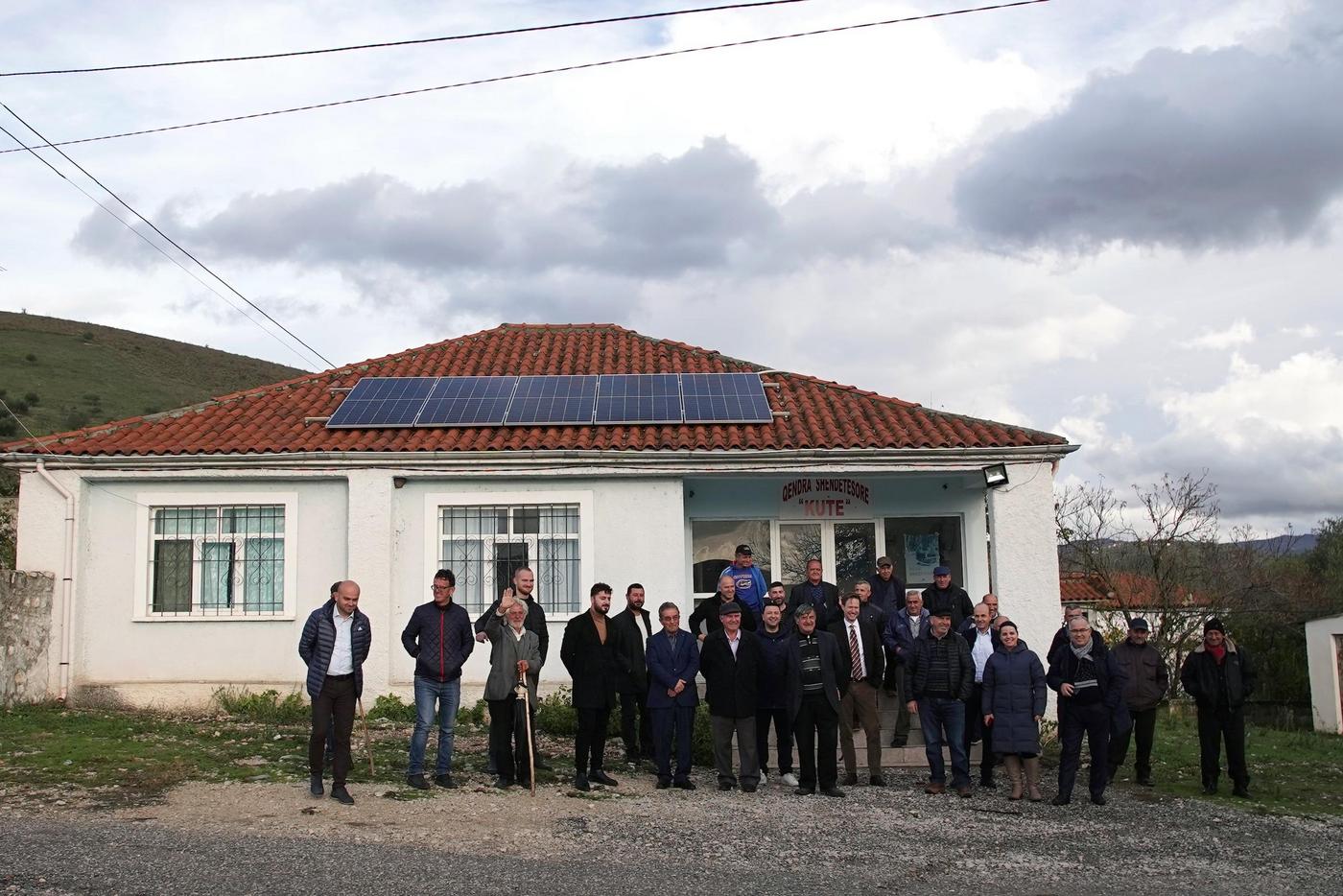
Exemplary in the expansion of solar power: the Albanian municipality of Kutë.
© Christiane SchmidtIndeed RePowerEU – the upcoming plan from the European Commission to deal with stepping away from Russian fossil fuel will need to foresee a way forward for this winter. However, it should stay away from building infrastructure that takes years to operationalise. Instead, it should focus on reducing energy consumption. It is incredible how allergic politicians can be to speaking up for a collective reduction of energy use, when this helps everyone and the planet. This is not only about every person or business collectively reducing their heating by at least 1 degree, but about governments regulating and enforcing increased insulation in as many houses as possible, installing smart heating controls on houses, replacing as many gas boilers as possible with heat pumps, reducing speed limits, making public transport cheaper, and making car-free Sunday a thing – at least monthly – in every major city. But if politicians really want some active purchasing and building, then they should focus on putting as many solar panels on buildings before this winter.
But it is the RED that can ensure that in a couple of years-time, we’re not facing an even more severe energy crisis. Instead, we have stability and security because our energy production is decentralised, and individual homes can create their own energy and give it to their neighbours or to the neighbouring village. The EU needs more renewable energy communities that are producing renewable energy supplied from low-ecological risk areas – i.e., aligning with nature, such as solar, wind and geothermal. Destroying forests and rivers to produce energy does not make sense because there are so many other better ways to produce energy.
If you’re an EU politician and you do not believe that the future for Europe is to align renewable energies with nature, then ask yourself why are you turning a blind eye to the obvious? Who is telling you that everything will be ok if nature is compromised? Who is gaining from not following scientific advice?
Knowing that politicians have chosen to do wrong because they have something to gain is maddening – the same way that Angolan politicians have chosen to gain from a civil war, or whichever self-gratification Putin has for this devastating war. These are illogical decision that makes citizens feel hopeless. How can you trust in the system? Trust in politicians is at its very low in Europe. Decisions keep being taken based on vested interests instead of following sound science, ethics, and principles. Changing one’s view is hard, because it often means admitting fault. But EU politicians need to change to make us trust them again.
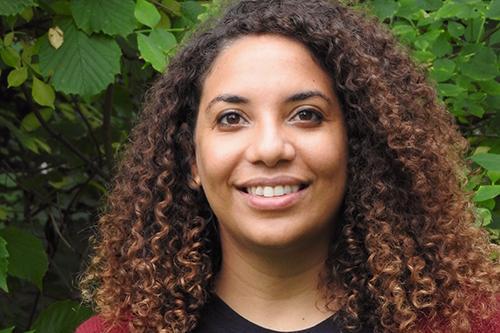
Author: Bruna Campos is the Senior Policy Manager at EuroNatur and an avid advocate for system change in the European Union. Bruna spent her childhood in war-torn Angola.
We welcome your opinions on this blog post. Send Bruna an email with your thoughts on the topic: bruna.campos(at)euronatur.org
Read also our other blog posts



